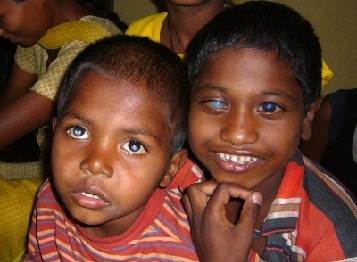By Nitin Choudhury:
It is disheartening fact that India is among the countries with the largest number of people suffering from blindness or visual impairment. One out of every three people suffering from it lives in India. Blindness hampers all aspects of a person’s life especially education which is undoubtedly the backbone of a country’s growth and development. For a country which is striving hard for a developed nation status, it is certainly a cause for concern. However, it is reassuring that a majority of the cases of blindness in India can be cured or better still prevented provided eye treatment is made more accessible.

Reports from the WHO as well as many local NGOs have outlined that about 80% of all visual impairment and blindness can be avoided or cured. But for that to happen, we all must play our part. The government needs to set up new national programmes and/or fortify the existing ones to prevent, cure and spread awareness about the disease. The private sector should cooperate with the government in establishing more and better eye care facilities. The problem with eye care services is that it comes at price which is difficult to afford for many in the low income category. There is no point in establishing state of the art eye care facilities if only a few can reap the benefits. The private sector can also support and bolster the NGOs working for the prevention of blindness. Many NGOs have taken initiative and are actively working for spreading awareness and providing treatment, especially in remote areas where it is most required. Such NGOs should be encouraged and provided full support.
Even individuals can make significant contribution for the cause. For starters, we can make an effort to know the symptoms and spread its awareness. We can ensure that those around us do the same. We should encourage people to get regular eye checkups and take proper treatment if needed. We can spread awareness about the importance of a healthy diet, in general and for prevention of blindness as well, as vitamin A deficiency is one of the major causes of blindness in India. And if that’s too much to ask for, the least one can do is taking care of one’s own eyes.
In addition to all these, individuals can bring a greater impact by pledging to donate their eyes. More than 90 percent of the transplants are carried out successfully. The remaining 10 percent of the donated eyes are used for education and research purposes. There are many organisations and eye banks where eyes can be donated. It is, of course not that easy, as eyes need to be removed within 4-6 hours after death, which could be very overwhelming for the family and relatives of the donor. However, we must try to get over that feeling and instead think of what it could mean for someone who isn’t blessed with the gift of vision.
Our eyes are the most crucial and delicate of all sense organs. It helps us perceive the myriad colours of life as also the most stunning sights that the world has to offer us. Take care of this precious gift in your lifetime and in death, pass it on to those who are bereft of this gift. As they say, you may no longer be here in this world but let your eyes continue to see and light up someone else’s dark world.